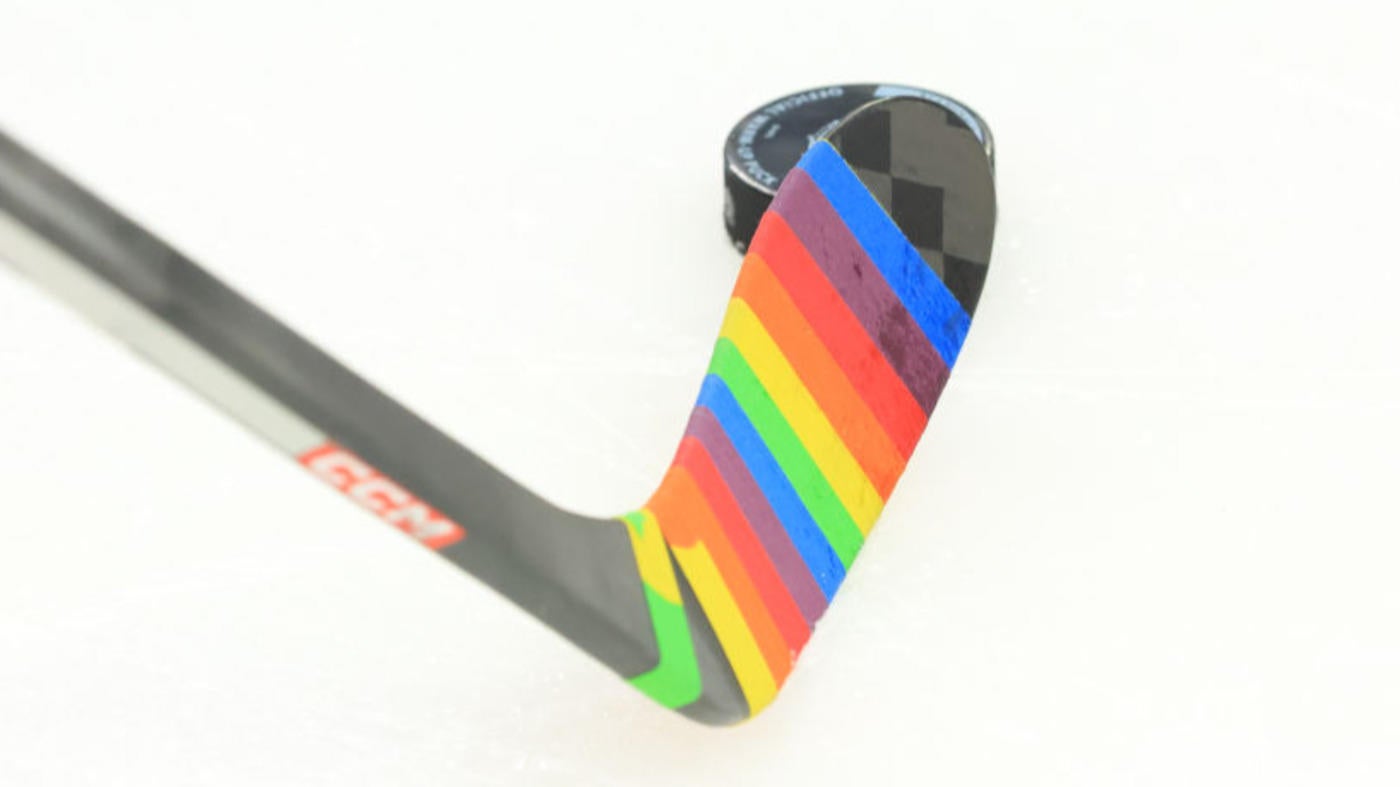
In a significant move towards inclusivity and acceptance, the National Hockey League (NHL) has recently lifted its ban on the use of Pride Tape. This decision comes after defenseman Travis Dermott of the Arizona Coyotes boldly used the tape during a game against the Anaheim Ducks, making a powerful statement about inclusivity in professional sports.
Pride Tape, a multicolored adhesive tape, was initially created in 2016 by the You Can Play Project, an organization dedicated to promoting equality, respect, and safety for all athletes, regardless of their sexual orientation or gender identity. The tape features rainbow colors, which are widely recognized as a symbol of LGBTQ+ pride.
The NHL’s previous ban on Pride Tape had been a source of controversy and criticism. Many argued that the ban hindered players from expressing their support for the LGBTQ+ community and created an unwelcoming environment for LGBTQ+ athletes. However, Dermott’s decision to use the tape during a game sparked a renewed discussion about the ban and its implications.
Dermott’s choice to wear Pride Tape on his stick during the game was met with overwhelming support from fans, teammates, and even opponents. The defenseman explained that he wanted to show solidarity with the LGBTQ+ community and send a message of inclusivity to hockey fans around the world. His actions were widely praised as a courageous step towards breaking down barriers in professional sports.
Following Dermott’s display of support, the NHL quickly reevaluated its stance on Pride Tape. In a statement released shortly after the game, the league announced that it would no longer enforce the ban, allowing players to freely express their support for LGBTQ+ rights using Pride Tape.
This decision marks a significant milestone in the NHL’s ongoing efforts to promote diversity and inclusion within the sport. By lifting the ban on Pride Tape, the league is sending a clear message that all players should feel comfortable and accepted, regardless of their sexual orientation or gender identity.
The NHL’s decision also aligns with broader societal changes and growing acceptance of LGBTQ+ rights. In recent years, professional sports leagues around the world have taken steps to create more inclusive environments for LGBTQ+ athletes. By allowing players to use Pride Tape, the NHL is joining this global movement and setting an example for other sports organizations to follow.
While the lifting of the ban on Pride Tape is undoubtedly a positive step forward, it is important to recognize that there is still work to be done in creating a truly inclusive and accepting environment in professional sports. LGBTQ+ athletes continue to face challenges and discrimination, both on and off the field. However, gestures like Dermott’s and the NHL’s decision to embrace Pride Tape serve as powerful reminders that progress is being made.
In conclusion, the NHL’s decision to lift its ban on Pride Tape following Travis Dermott’s use of it during a game against the Anaheim Ducks is a significant moment for LGBTQ+ inclusion in professional sports. This move demonstrates the league’s commitment to fostering an environment of acceptance and sends a powerful message of support to LGBTQ+ athletes and fans worldwide. As we continue to strive for equality in sports, actions like these remind us of the power of inclusivity and the positive impact it can have on individuals and communities.

